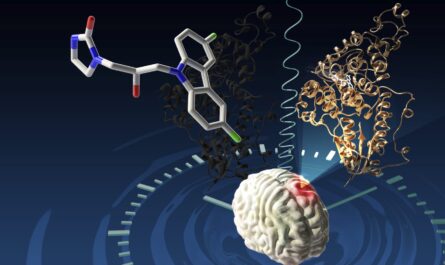A recent clinical trial has revealed that utilizing magnetic resonance imaging (MRI) and tracking technology to direct the delivery of magnetic stimulation to the brains of individuals suffering from severe depression can lead to noticeable improvements in symptoms for at least six months. These findings have the potential to significantly improve the quality of life for patients with depression.
The trial, known as BRIGhTMIND, was conducted by experts at the University of Nottingham and hosted by Nottinghamshire Healthcare NHS Foundation Trust. It involved five centers across England and focused on the use of MRI neuronavigation-guided Transcranial Magnetic Stimulation (TMS) to treat severe depression. TMS is an outpatient treatment where magnetic pulses are delivered to specific areas of the brain, resulting in symptom relief. Previous studies have shown that the benefits of this treatment typically last only 1-3 months, but the current trial demonstrated substantial improvements lasting up to 26 weeks.
Major depression is a leading cause of disability worldwide, and treatment-resistant depression (TRD) affects roughly one-third of individuals with the condition. TRD is characterized by a lack of response to multiple courses of antidepressant medication. The aim of the BRIGhTMIND trial was to determine if employing TMS with MRI guidance could extend the effects of treatment to at least six months, reducing the need for frequent interventions.
The trial involved 255 participants, all of whom completed 20 TMS sessions. Using a computerized tracking system and light-based neuronavigation, the researchers targeted the specific areas of the brain for stimulation in each session. The use of MRI allowed for personalization of the stimulation site, while the neuronavigation ensured consistency across all treatment sessions. This method significantly reduced the variability in stimulation, resulting in minimal side effects and allowing patients to resume their daily activities immediately after treatment.
The results of the trial were promising. Over two-thirds of participants responded positively to the treatment, with one-third experiencing a 50% improvement in symptoms, and one-fifth achieving remission. This is particularly significant considering these patients had not responded to previous treatment attempts and had been ill for an average of seven years. The improvements seen in the trial were not limited to reducing depression symptoms; they also led to enhancements in concentration, memory, anxiety, and overall quality of life.
As a result of these findings, three NHS Mental Health Trusts, including Nottinghamshire Healthcare NHS Foundation Trust, have already begun offering TMS services for the treatment of TRD. This highlights the potential of TMS with MRI guidance to become a standard treatment option for individuals with difficult-to-treat depression.
The trial participants themselves expressed gratitude for being a part of such groundbreaking research, acknowledging the positive impact it could have on the future treatment of depression. The researchers believe that the next challenge is to make transcranial magnetic stimulation universally accessible for individuals with TRD.
The significance of these findings was also acknowledged by Professor Danny McAuley, the Scientific Director for NIHR Programs, who recognized that this novel technique could greatly benefit patients with severe depression that has been unresponsive to other treatments.
*Note:
1. Source: Coherent Market Insights, Public sources, Desk research
2. We have leveraged AI tools to mine information and compile it



